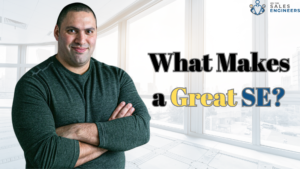
Notes:
How does it feel to be on the customer’s side? Although both sales engineering and solution design or architecture are highly technical, they also require a comprehensive understanding of the product and strong business acumen. An SE will help seal the deal and an SA will help build the plan post-sale. Having worked in both roles in presales and customer success, our guest today shares with us what it’s like being on the other side and fielding technology vendors for his customers.
Gary Sloper is the Co-Founder of Macronet Services, a leading Solution Architecture & Management Consulting firm based outside of Boston. The company’s focus is on delivering technical network, collaboration, security services across multi/hybrid cloud designs wrapped with our Customer Success methodology. He previously led Fortune 100 Solution Architect & Customer Success teams of upwards of $1Billion in revenue to small startup/mid-size companies. He is also a featured author & public thought leader across solution design & customer success where he often advises various stage companies.
Key Takeaways:
- Shifting from pre-sales as a vendor to doing full-time as solution design for customers
- The difference between working with customers and working with sales teams
- Challenges of being a solution architect for sales teams and companies
- How technology producers outnumber technology buyers which result in buyers being extremely product-fatigued
- How SEs should learn to own that customer journey as well from PreSales and post-sales
- Navigating the financial ask with a CFO or finance teams
- Keeping up with learning about all the different vendors
- What has changed in Gary’s relationship with his customers since he’s changed roles and now working with the customer vs being in a pre-sales leadership position
- Being viewed as a customer advocate instead of a salesperson
- What Gary thinks makes a good Sales Engineer now that he is on the other side of the role
- How the industry is changing more towards services and customer success and how small companies can adapt
- Why big companies or 800-pound corporations don’t implement and support services
Quotes:
3:24 “It’s like basically being a solution engineer, customer success manager, a salesperson, a procurement person.” – Gary Sloper
04:40 “What we’re doing is we’re helping customers on their behalf, almost acting as an extension of their team to then interface with the Sales Engineers and account teams and in a much more expeditious fashion to get to the point, whether it’s design, the price, those types of things, but I also think it takes the customer burden off.” – Gary Sloper
06:23 “Now I get to pick and choose where I want to play in the solution design space. And I think that intertwines really nicely from a customer success standpoint.” – Gary Sloper
11:59 “I think what’s changed now is because I’m not coming from that one company, they look at us as a true technical adviser to help them. I value that my customers feel like they share more information than I ever would have received in the past. – Gary Sloper
13:17 “We’ve built this relationship with the customer and will view us as an extension of their team. And to me, that’s a win. And it doesn’t matter what type of business they do, if they just start viewing us as a team member, we’ve won, in my opinion, in a good way.” – Gary Sloper
24:01 “Just because you’re an SE doesn’t mean you couldn’t understand the customer success motion, or you shouldn’t have some understanding of the products that we’re supporting in trying to tie those together. I think the organizations that get that today are the ones that are really starting to have the rising tides of being successful.” – Gary Sloper
25:52 “I think you’ll find that the customers will appreciate how you’re trying to be that pre-sales, post-sales kind of support mechanism, call it customer success, call it solution architecture, whatever it is, at the end of the day, you’re designing, implementing and supporting customers.” – Gary Sloper
30:41 “Pre-sales will be the most sought-after role, but I think it has the most ripe for disruption in a good way.” – Gary Sloper
39:40 “When you’re starting out in a startup world, it’s really making sure that you can continue to maintain that time management because what you think may only take you 10 minutes sometimes turns into 20 or 30. Because you don’t have a huge team behind you. It’s all on you. And so I think that’s very applicable in the SE world because when you’re working on an opportunity for a customer, you take on too much, then you’re not going to be good to any of your customers.” – Gary Sloper
38:25 “If you’re really good at something, don’t lose sight of that, because you are the expert. And it doesn’t necessarily have to be technical capabilities, really good demos, or presentations, or diagramming or research, whatever that is. Never lose sight of that.” – Gary Sloper
Links from the show:
- Macronet Services
- Gary’s podcast about listening.
- Solutions for Customers
- Gary’s LinkedIn
- O’Reilly Learning (affiliate)
If you enjoyed this podcast, please support the show by dropping a review or rating on iTunes. https://podcasts.apple.com/us/podcast/we-sales-engineers-resource-for-sales-engineers-by/id1378292171



